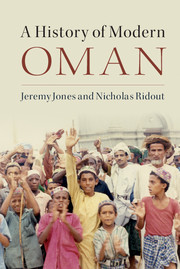2 - Oman, Zanzibar and Empire
from Part One - Foundations
Published online by Cambridge University Press: 05 September 2015
Summary
Between Sultan bin Ahmad's rise to power in Muscat in 1792 and the death of his son and successor, Sayyid Said bin Sultan, en route to his home in Zanzibar in 1856, Oman established itself as a major commercial and maritime power in the Indian Ocean. The collection of ports, islands and associated territories assembled through the exertion of Muscat's maritime power has sometimes been referred to as an ‘empire’, and more recently as a ‘thalassocracy’. The term ‘empire’ suggests the coordinated exercise of political power from an all-powerful centre (Rome, Istanbul, London) and does not really capture the reality of the Omani network, while ‘thalassocracy’ has the advantage of indicating that political rule is exercised over a network by means of maritime power and connection rather than through the operations of a centralising state. Although it is perhaps an awkward and unfamiliar term, it does more effectively name the nature of Oman political and commercial power in the first half of the nineteenth century. In addition to building their network of trade relationships across the region, Omani merchants and traders also started to become part of a larger and incipiently global commercial system. The long-standing Indian Ocean network in which they had operated for centuries became increasingly integrated with the long-range trade of European and American industrial capitalism. This means that Oman was at this time a significant participant in an historical transformation which many historians have seen as establishing the essential foundations of the present ‘world-system’ of globalised capitalism. The sequence of events set out in this chapter must therefore be understood in relation to complex and long-range interactions with multiple national and commercial actors. Space does not permit us to trace all of these interactions or to provide for each event involving the key Omani protagonists a detailed account of how their actions affected and were affected by those of the many other participants in the expanding network of relations. Instead we shall briefly summarise some of the key features of Oman's immediate regional environment and aspects of its increasing integration into the globalising system of economic and political relationships being generated by the colonial expansion of European capitalism in the early nineteenth century.
- Type
- Chapter
- Information
- A History of Modern Oman , pp. 35 - 63Publisher: Cambridge University PressPrint publication year: 2015

